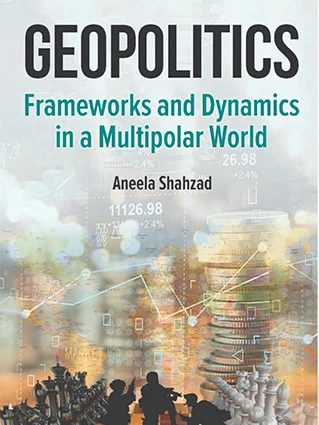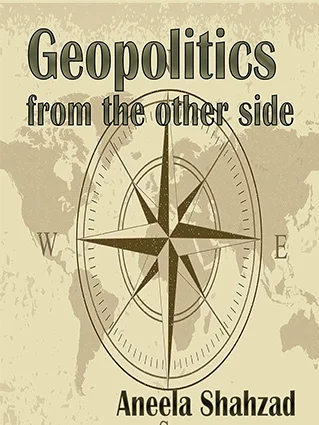
In a world dominated by Western narratives, the subject of geopolitics demands a fresh, non-Western perspective. Focusing on the historical and contemporary dynamics of global politics, the book examines how former colonizers and victors of world wars have shaped a politically correct narrative that serves their interests at the expense of others. By rethinking entrenched geopolitical constructs, this book seeks to empower the East to redefine its future on its own terms. This bold and thought-provoking critique invites readers on a transformative journey to challenge dominant paradigms and envision a more balanced global order.
What makes Geopolitics a grandiose subject though, is its ability to take out of the intricate complexities of constant variables, generalized patterns and ideas that define global politics, and the interactions between sets of nations. This generalization has to be taken as serious business because of the fact that human thought needs generalizations to understand the world it is living in and to be able to make day to day vital decisions – decisions that cannot wait for long painstaking research on every matter. By connecting the contemporary situations with their historical backgrounds, I have endeavored to complete my journeys with wholesome understanding and hope the readers will feel the same.


The book opens the readers to the extant and swiftly evolving nature of the Issue that is potentially approaching a decisive time as we read through – the hitherto failed Peace Process and the desperation of Israel to lay claim on Jerusalem and press the people of both Gaza and the West Bank to the Brink, testifies upon the fact that the times are astir.
Yet, in all its reign of terror, is Israel safe and placate? Or is it surrounded by fear and gloom too. What is the Palestine Issue, what are its solutions, how will it be resolved, is there any hope?
Today’s literature on geopolitics is widely a reflection of how it looks like when you’re looking from the west to the east – and those living elsewhere seem to have been denied the kaleidoscope from which they could define the world from their own perspective.
This dearth of the skill of expression has costed nations a lot – it has encaged them in the political correctness as directed by the more learned and improvised – it has defied them of the ideological progression that has to come before actual progress – and it has snatched from them the dream of their own powerfulness.

